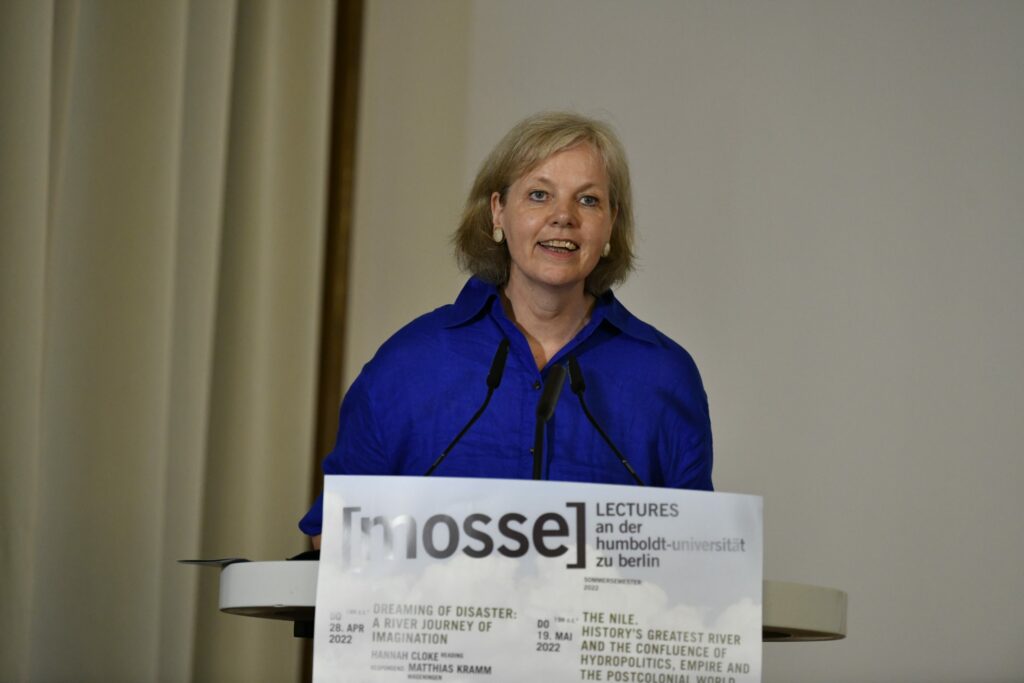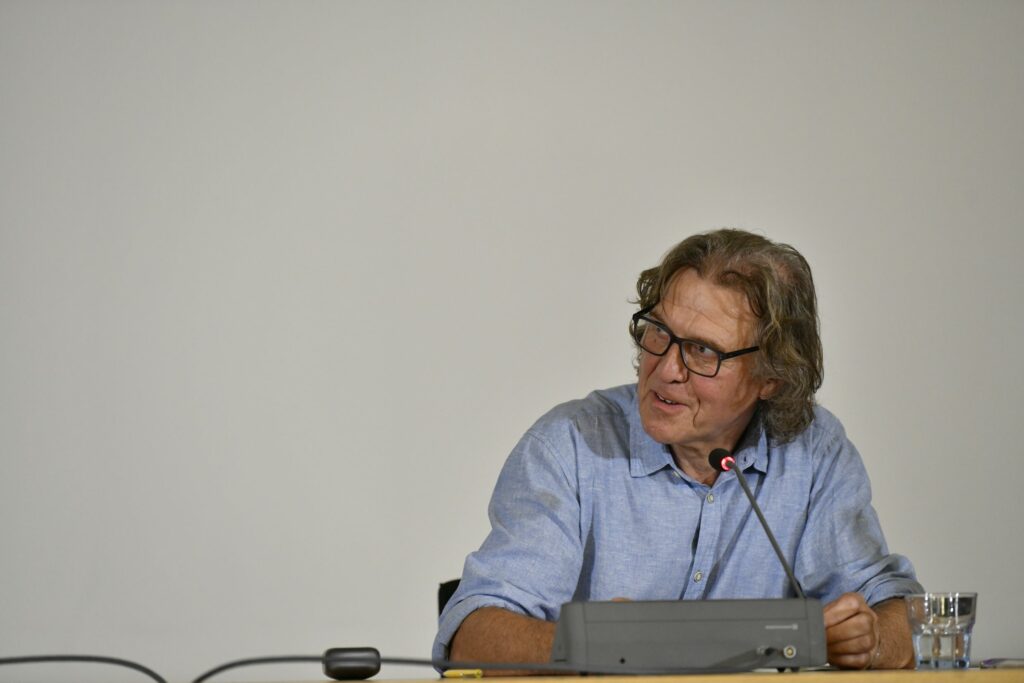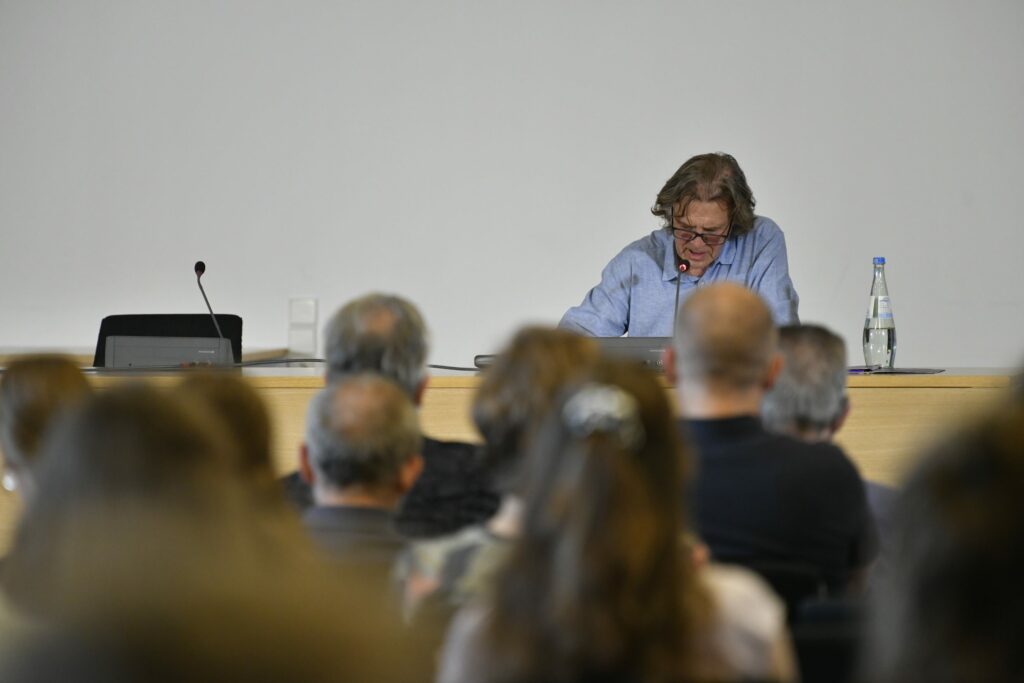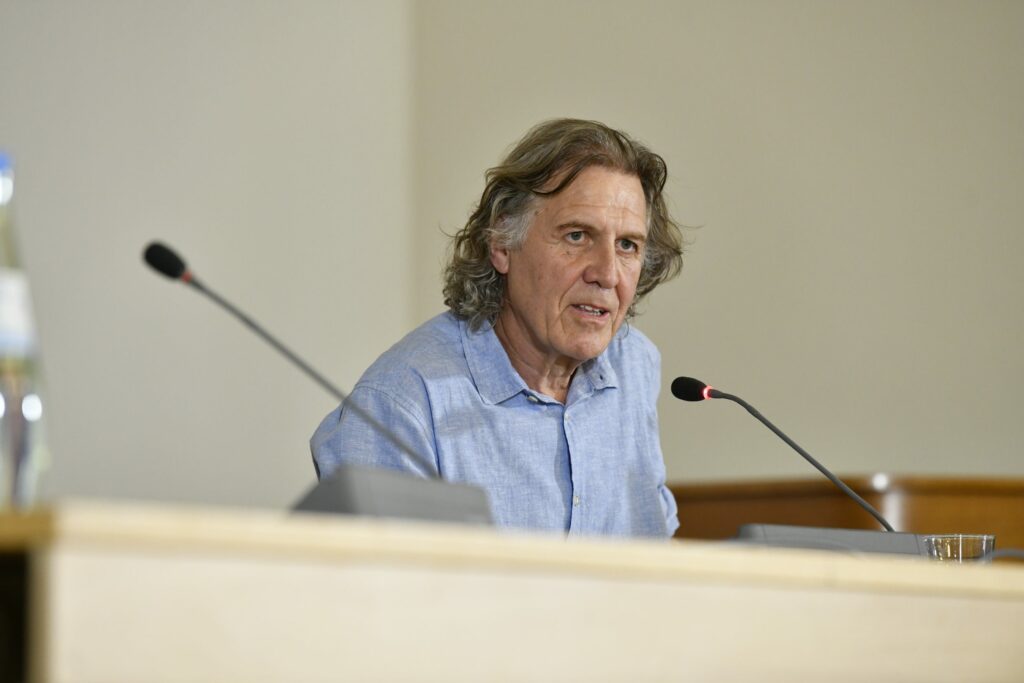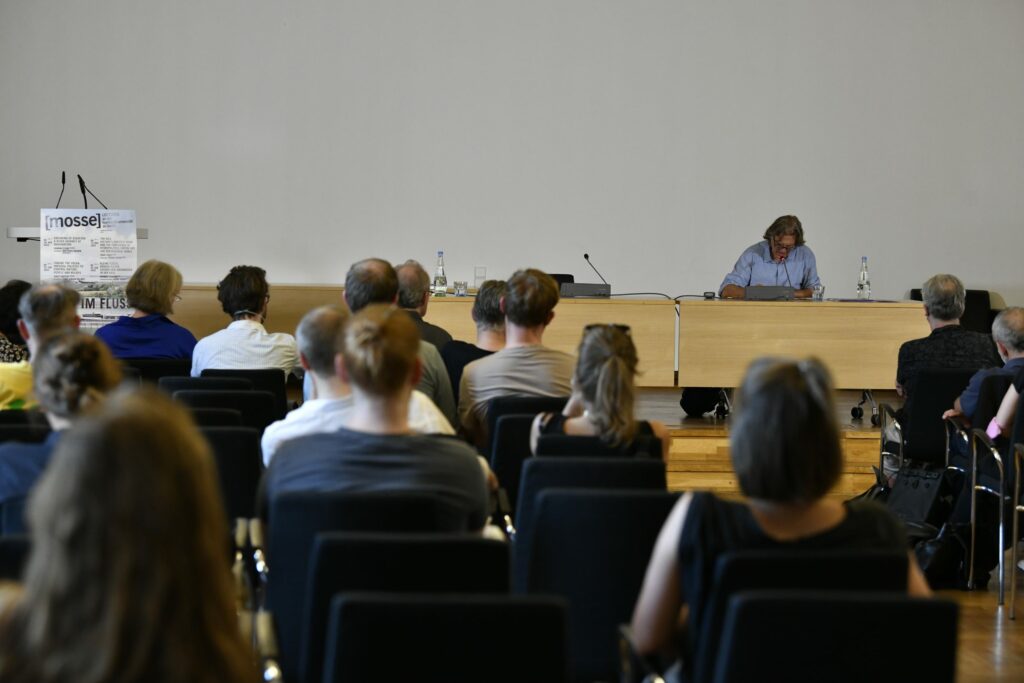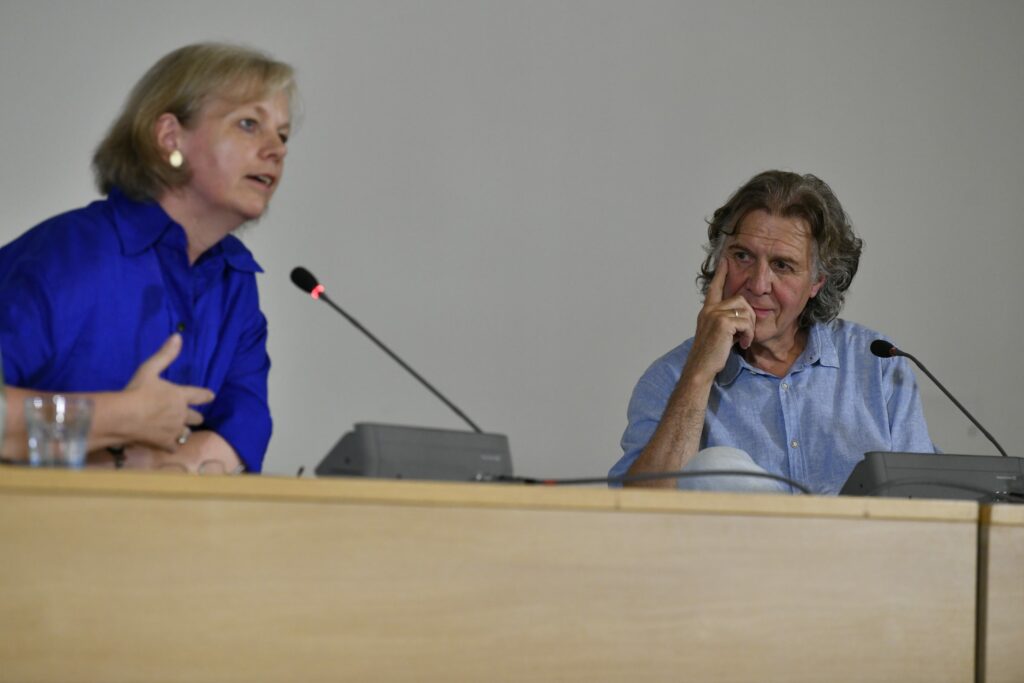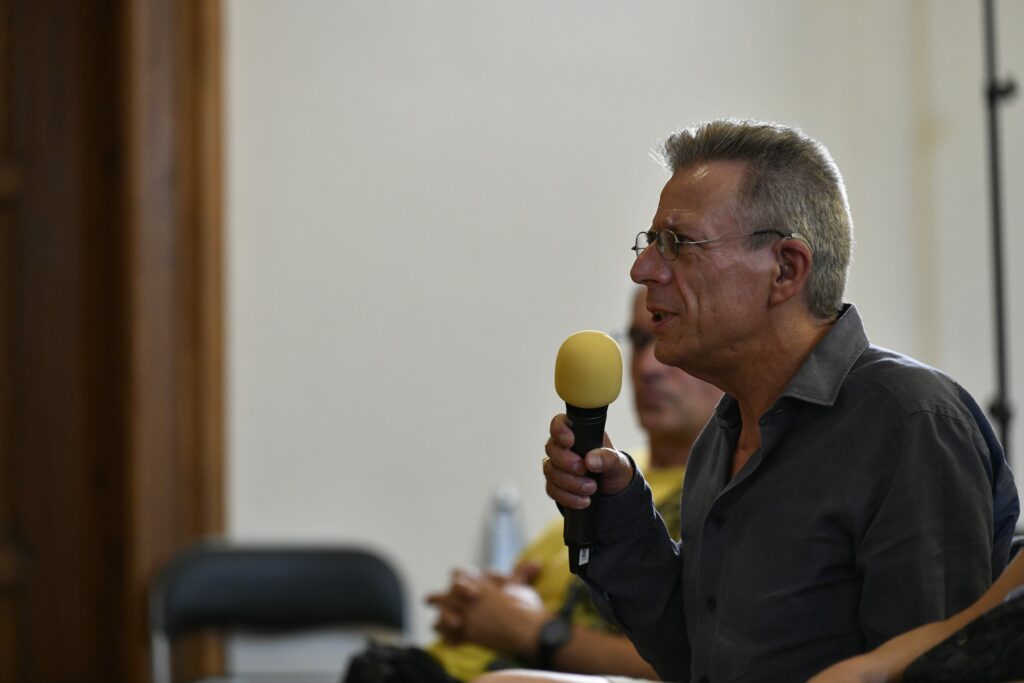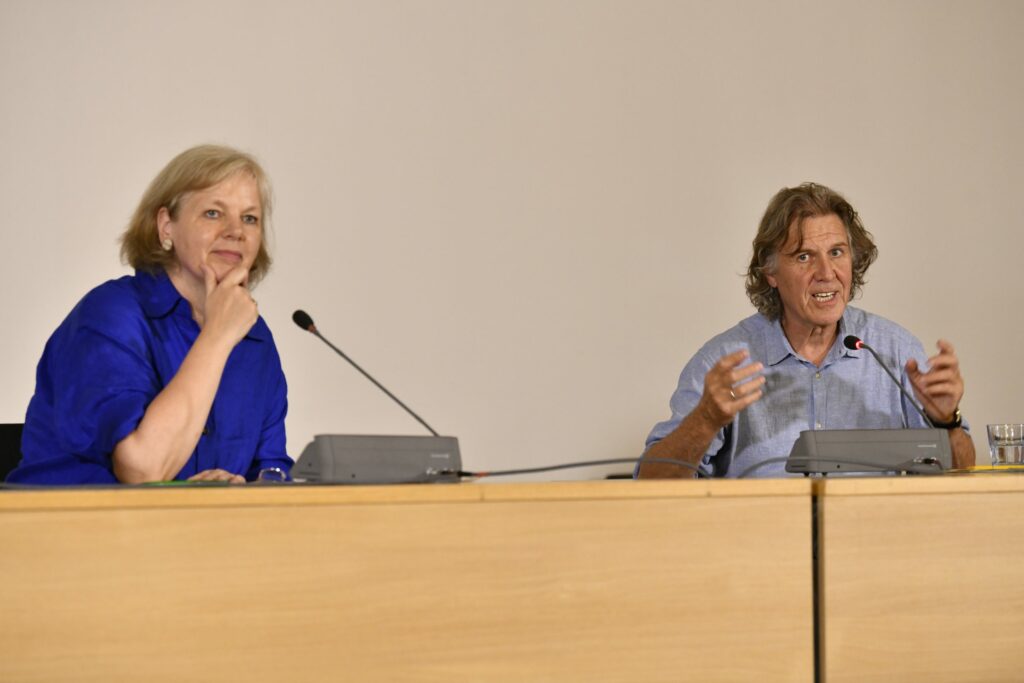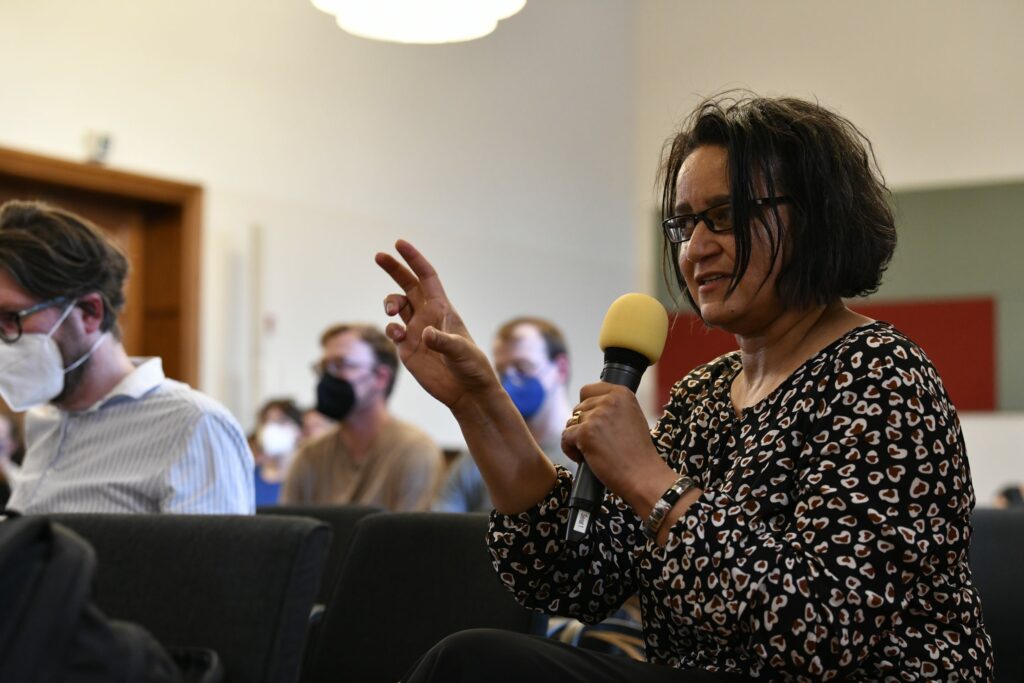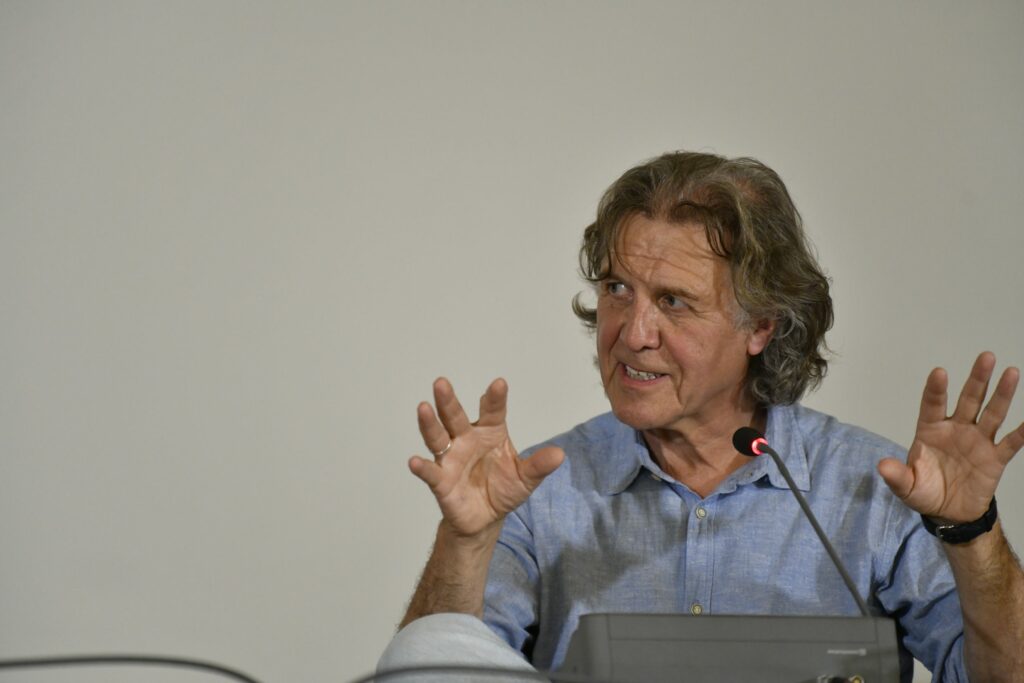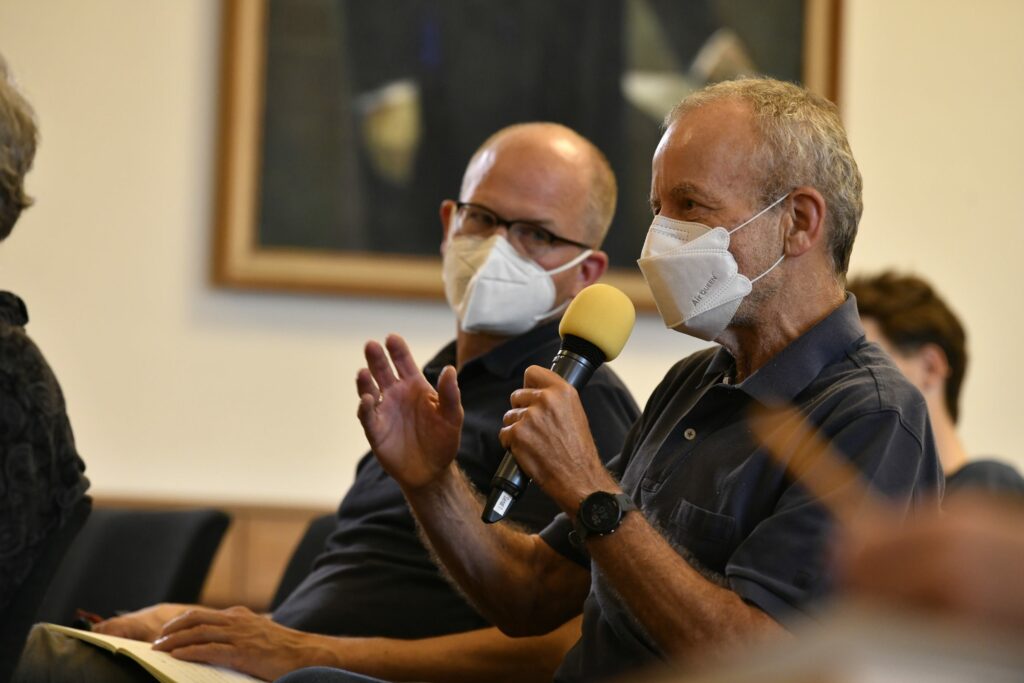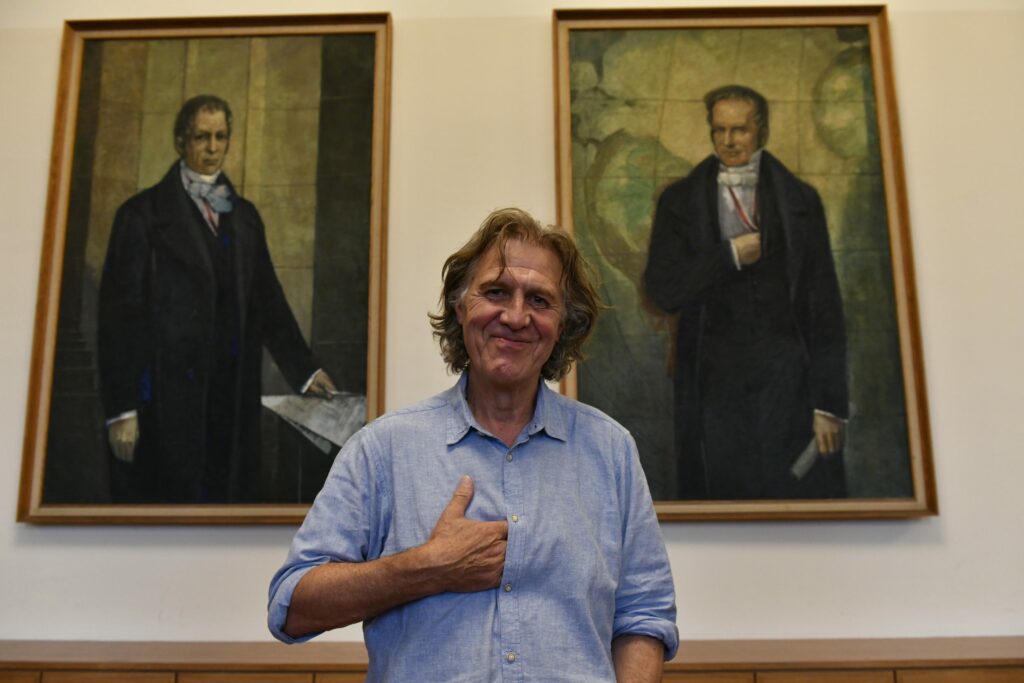Summer Term 2022
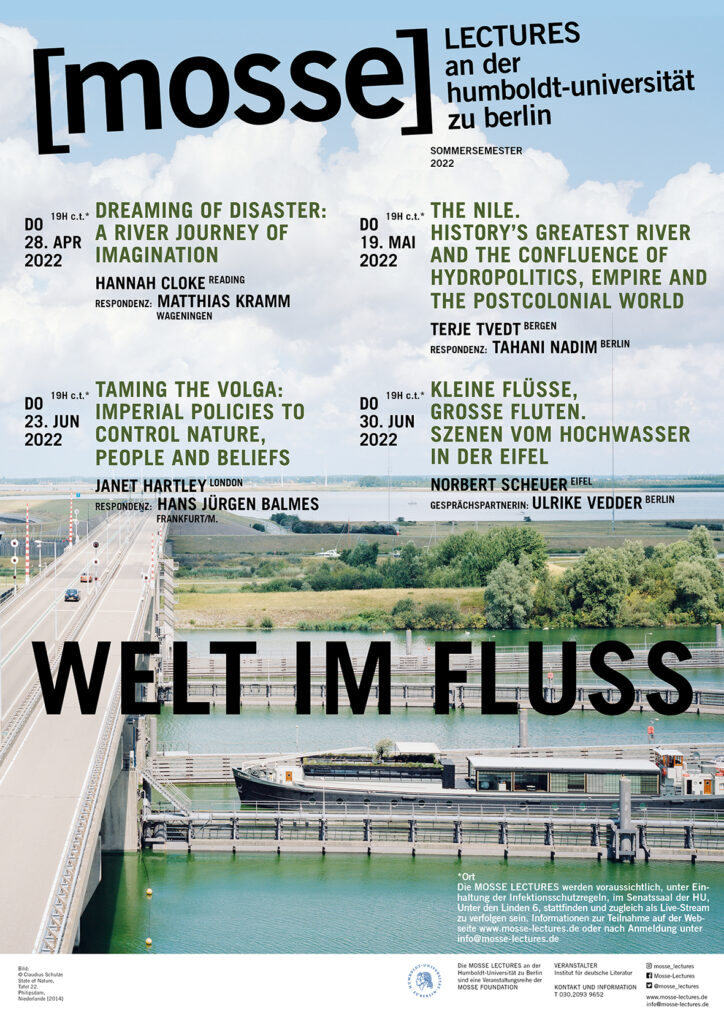
Rivers are the settings of the formation of civilizations, national identity orders and war conflicts; they are flowing spaces of memory, places of longing, and highly frequented trade routes. They function as “natural” borders between states and connect them at the same time, which is why they have always been used as migration and refugee routes. As such, the world’s rivers are important geopolitical spaces. The currently renewed disputes between the riparian states of Sudan, Egypt, and Ethiopia over the Nile and its water resources, in which economic interests, colonial legacies, but also the challenges of climate change converge, are just one of many examples of the political pressure to which rivers are exposed.
In addition, there is the very concrete pressure to exploit rivers that arises from regulating hydraulic interventions, which is being increasingly criticized by environmentalists. Rivers demonstrate the effects of the Anthropocene. Flood catastrophes such as the recent flood in Germany’s Ahr Valley clearly show that it is not only the major rivers but also their local branches that have long since become focal points of global crises. Yet the fact that the political use of rivers as border zones can also contribute to the creation of largely untouched biospheres is demonstrated by the floodplains of the Elbe, which, as peripheral landscapes, have been able to develop ecological diversity. People, rivers, and their (evolutionary) histories are in relationships of exchange that are only beginning to be explored.
The collective power of imagination has always made rivers places of passing, transition (into the realm of the beyond), or initiation (baptism) as well as transformed the source, course, banks, and mouth of the river into symbols of life, and assigned river gods, elemental spirits, and mermaids to them. The drying up and flooding of rivers as their catastrophic modes connect current ecological debates with the mythologies of rivers. In the summer semester of 2022, the Mosse Lectures will aim to combine a reflection on the spatially structuring dimension of rivers, on their geographical, geopolitical, economic–historical and ecological significance with a reflection on rivers as a resource for the self-interpretation of premodern and modern society.
Hannah Cloke
»Dreaming of Disaster: A River Journey of Imagination«
Response: Matthias Kramm | Introduction: Stefan Willer
Thursday, April 28, 2022 | 7.15 pm | Senatssaal HU, Unter den Linden 6 (Berlin) or via Livestream on our YouTube channel
gallery:
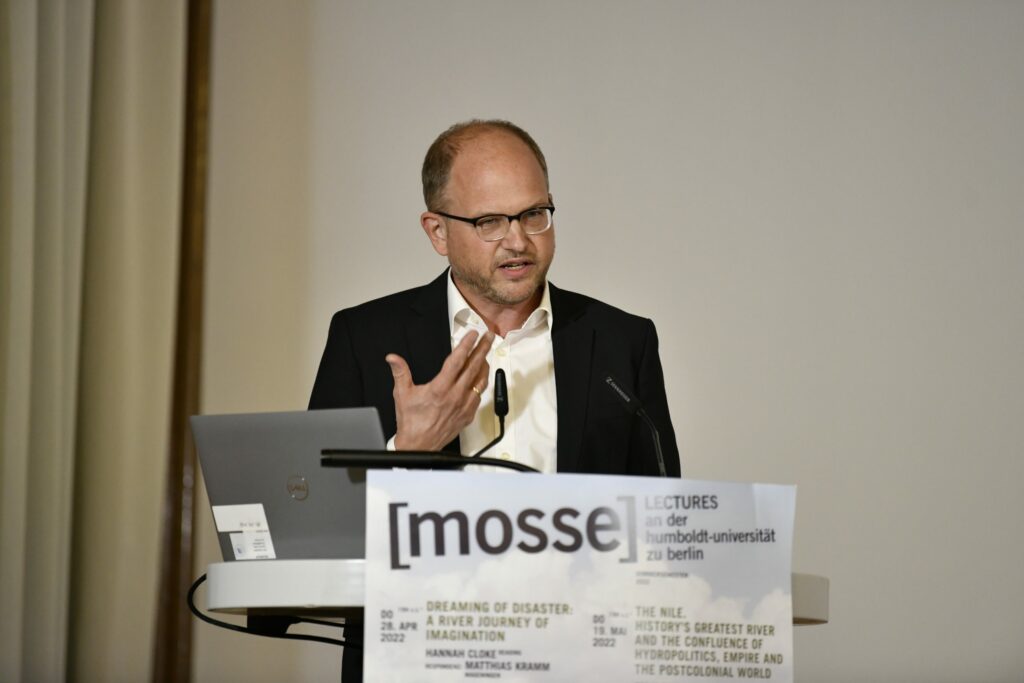
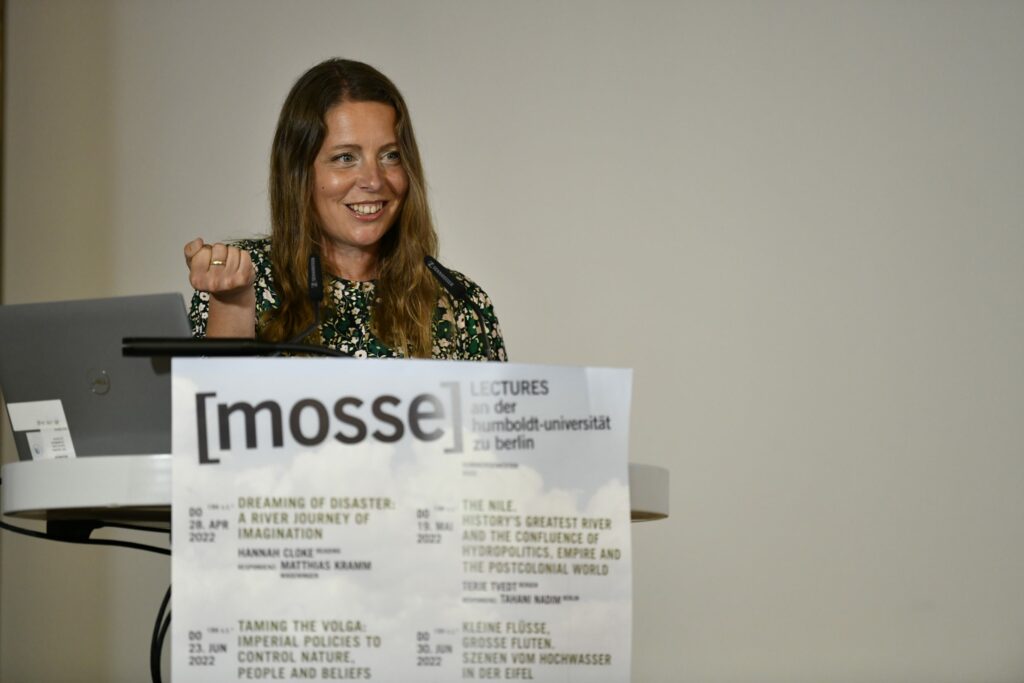
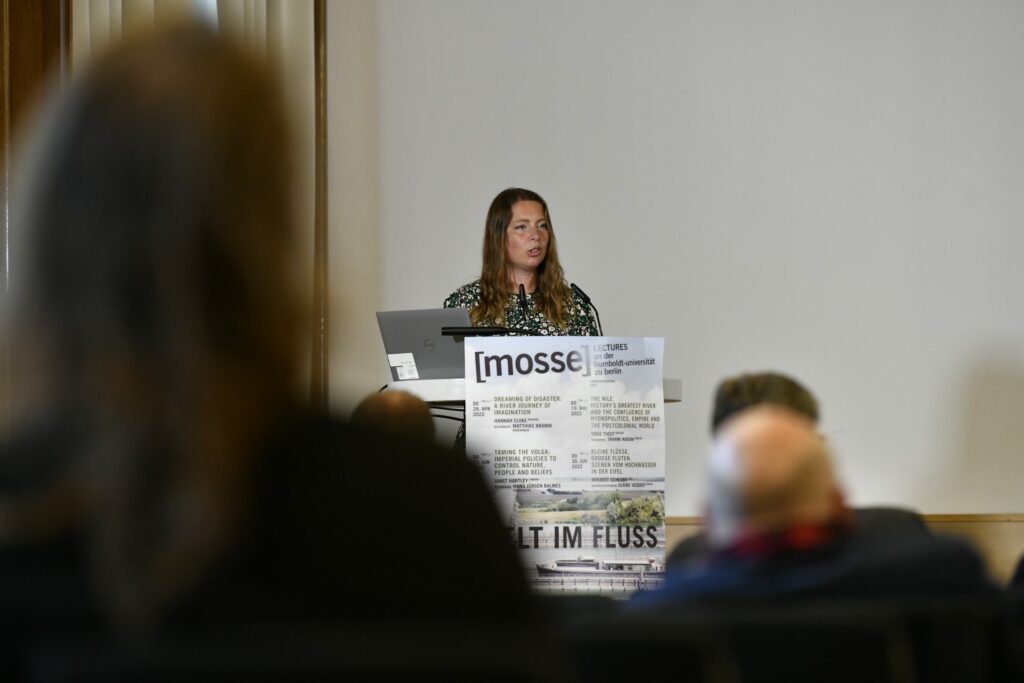
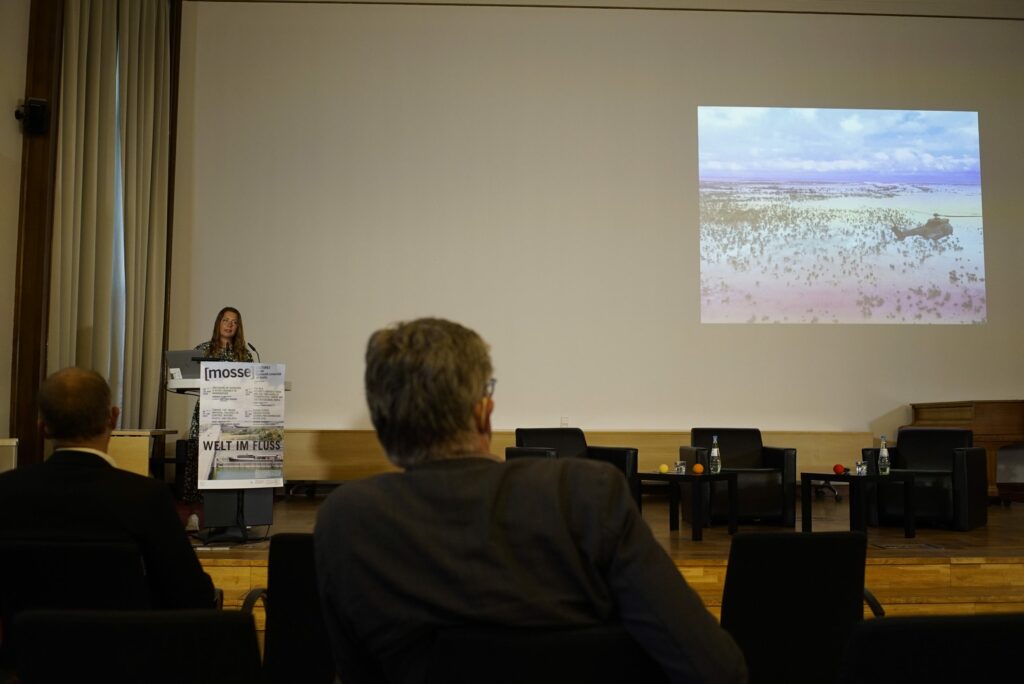
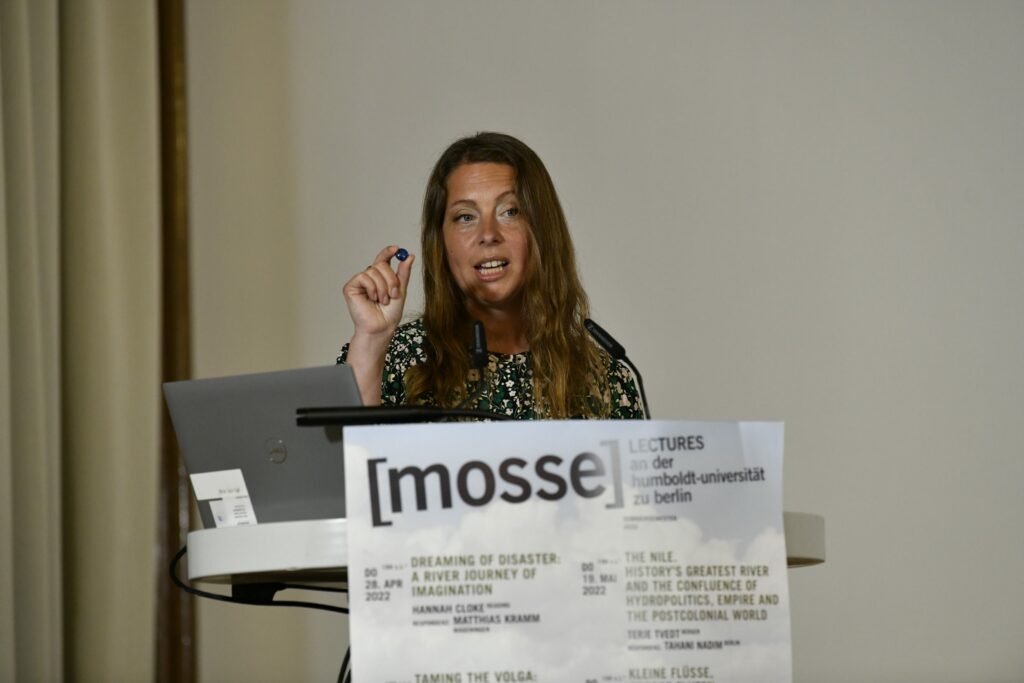
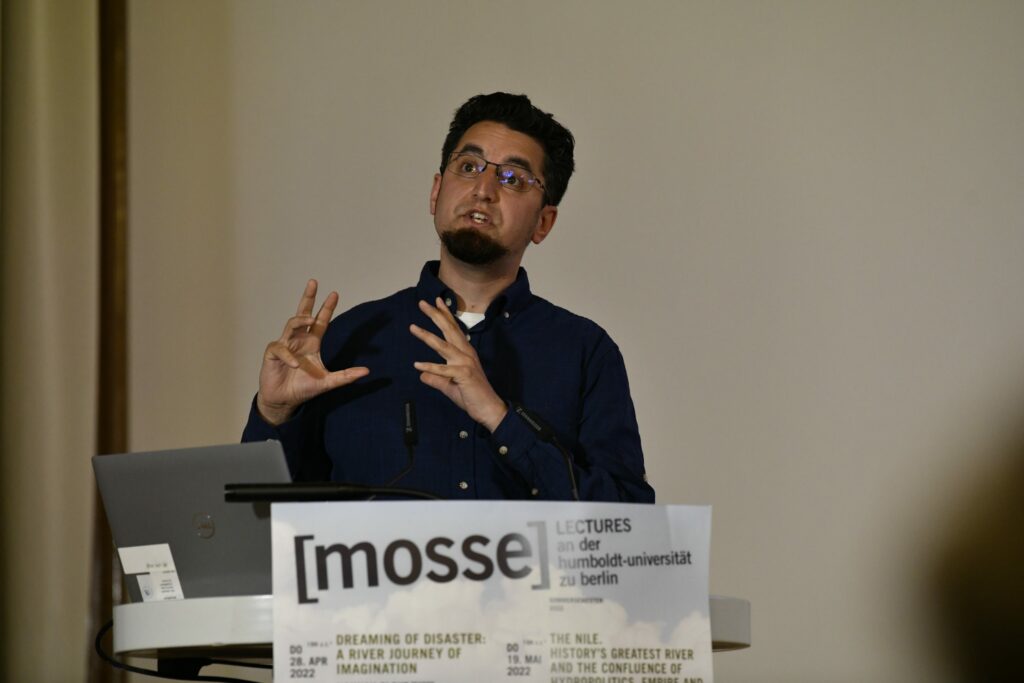
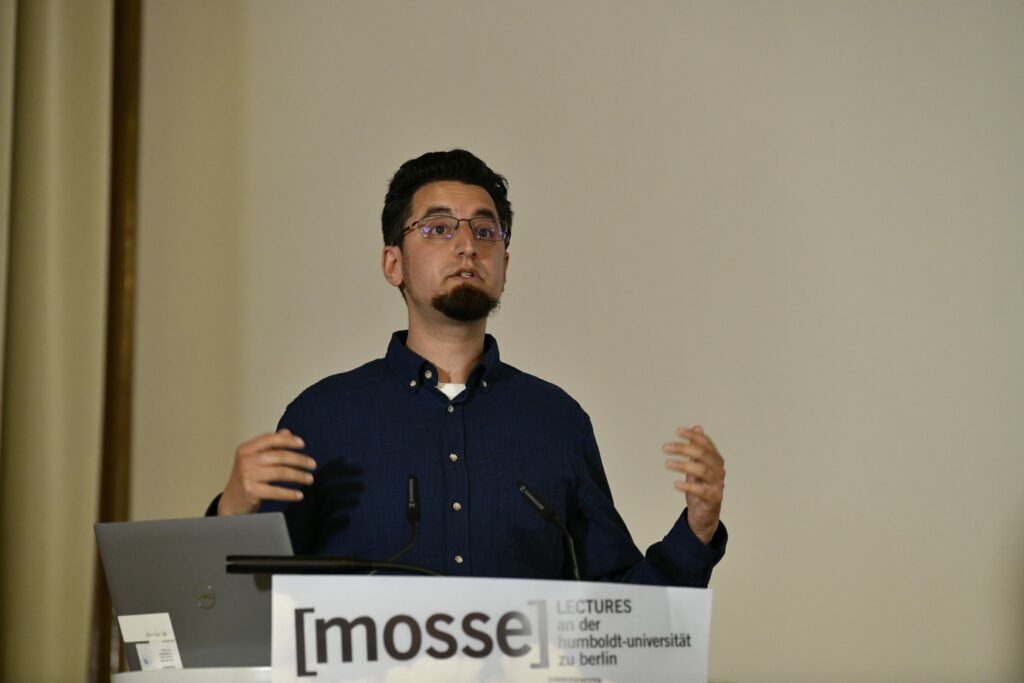
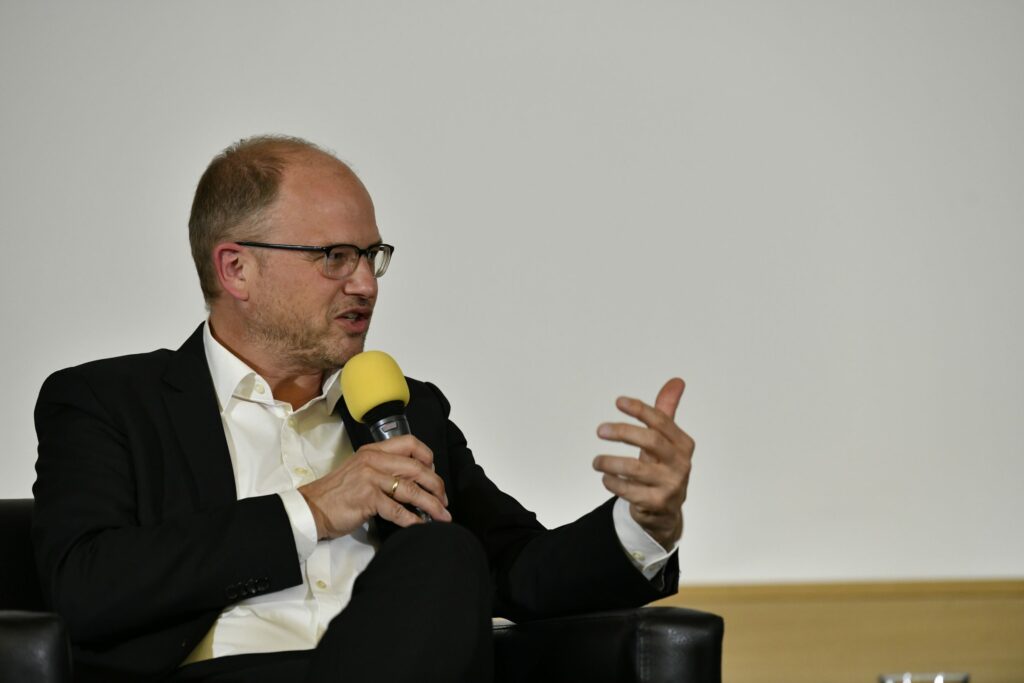
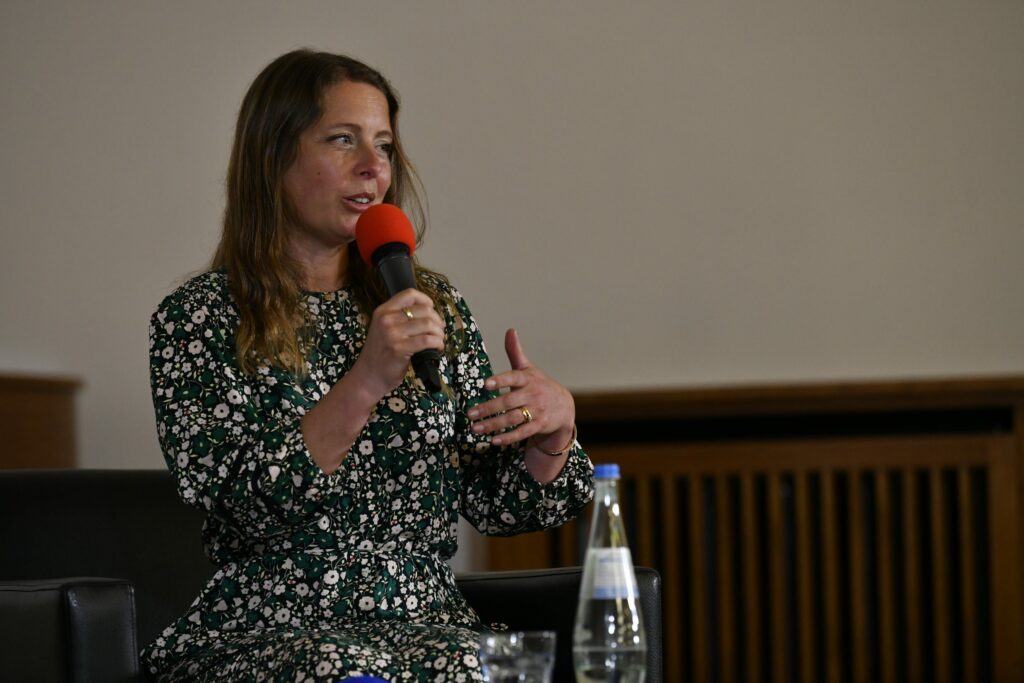
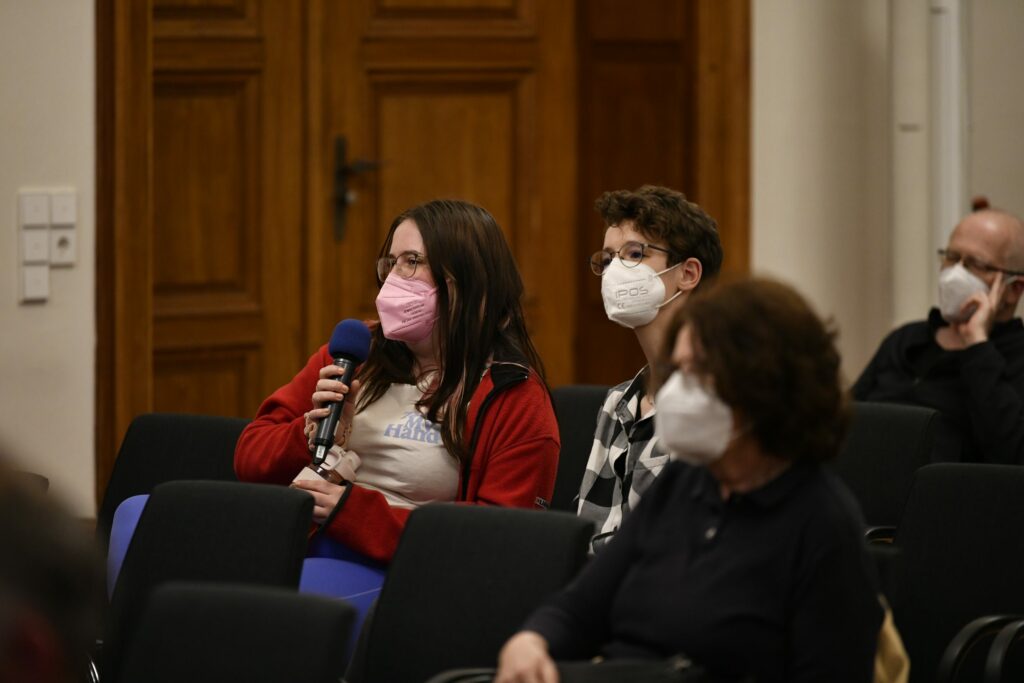
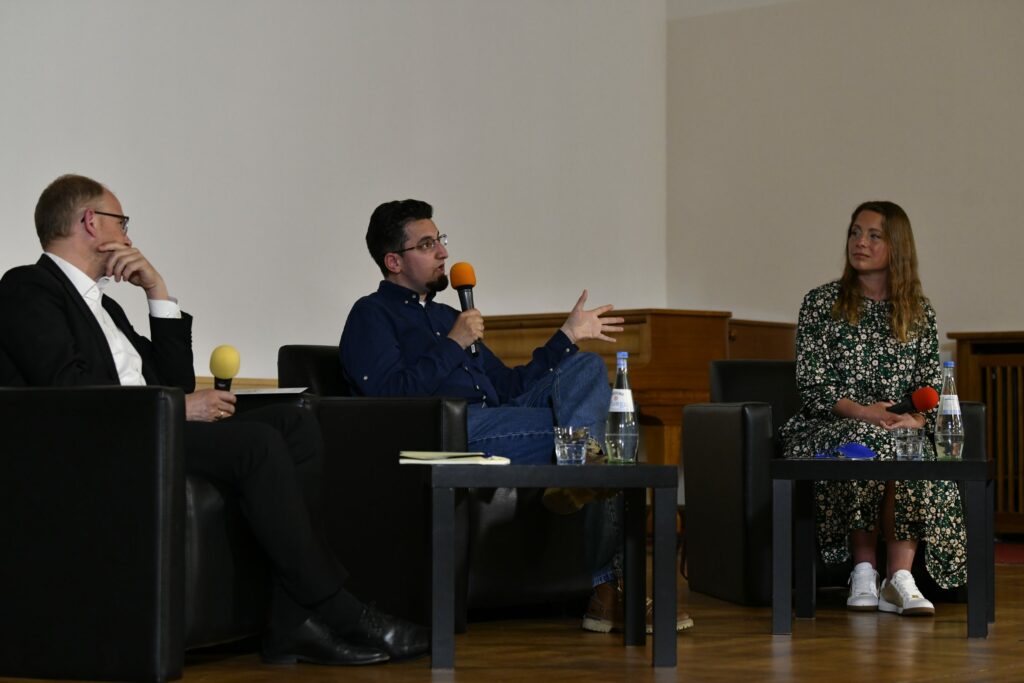
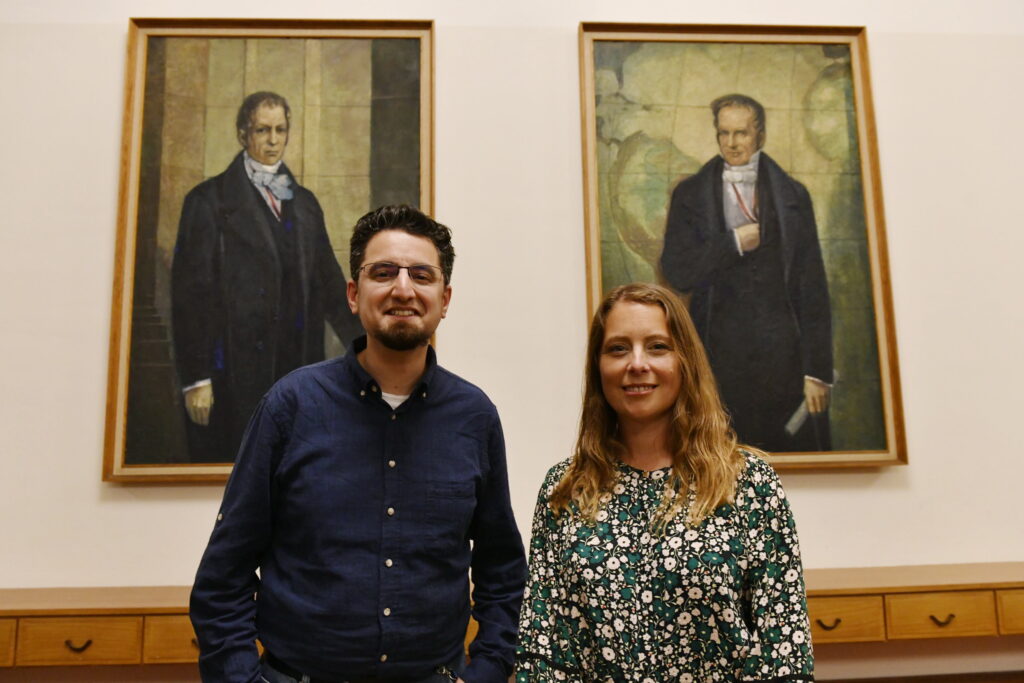
Terje Tvedt
»The Nile. History’s Greatest River and the Confluence of Hydropolitics, Empire and the Postcolonial World«
– Response: Tahani Nadim | Introduction: Lothar Müller
Thursday, May 19, 2022 | 7.15 pm | Senatssaal HU, Unter den Linden 6 (Berlin) or via Livestream on our YouTube channel
gallery:
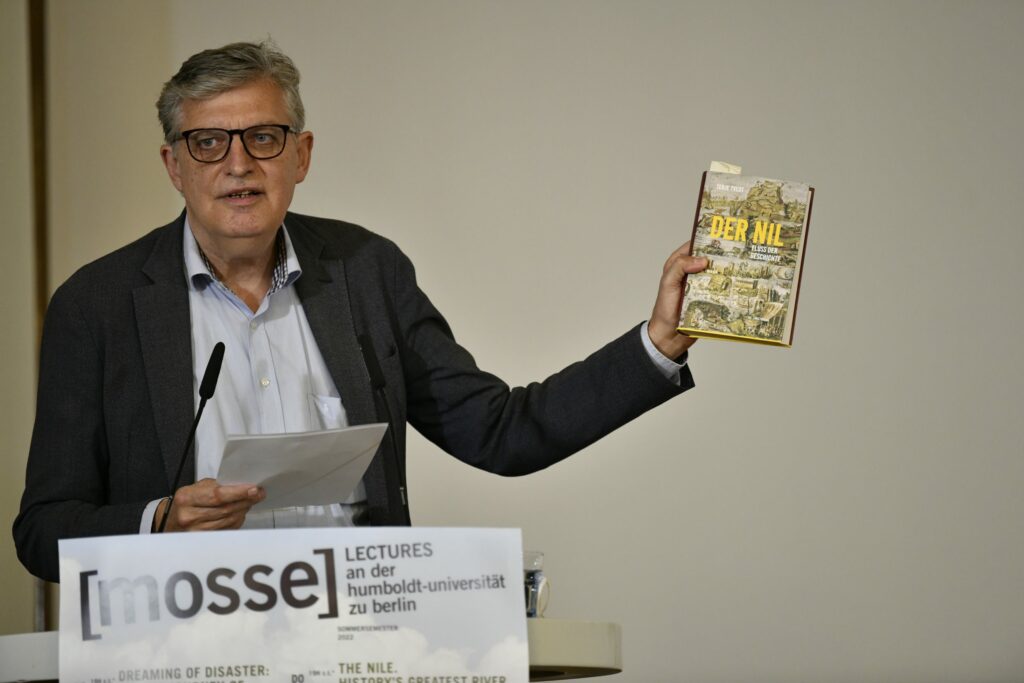
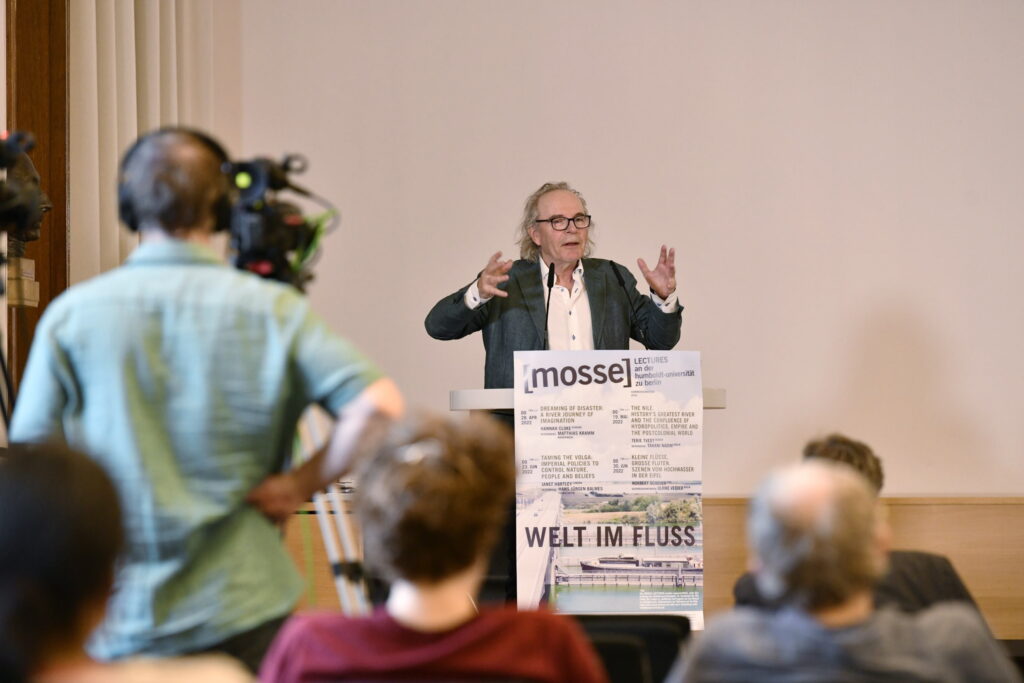
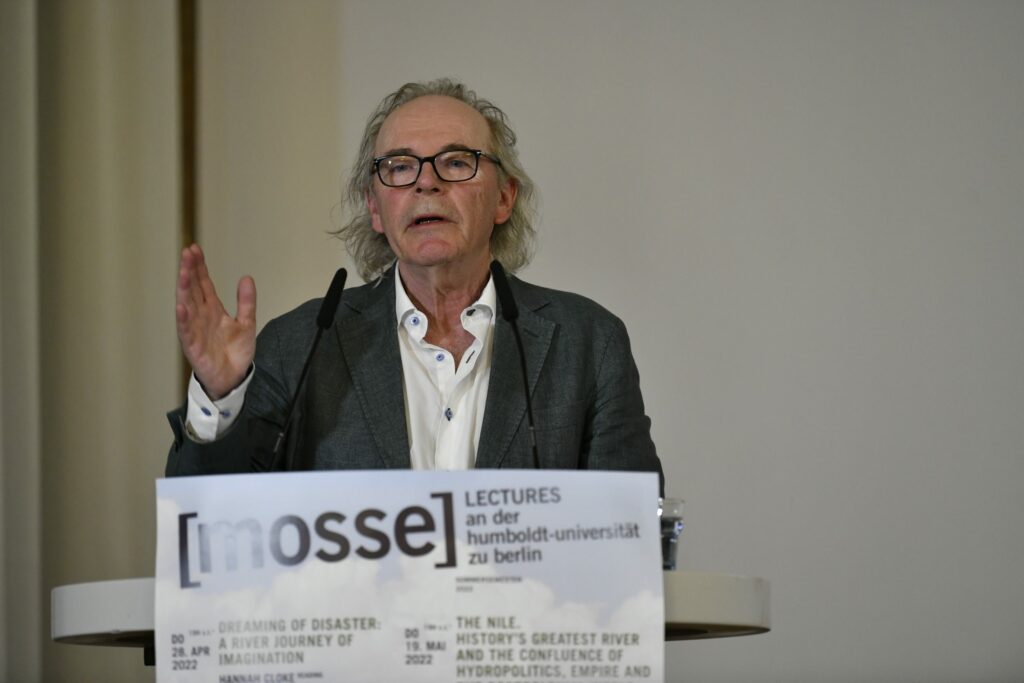
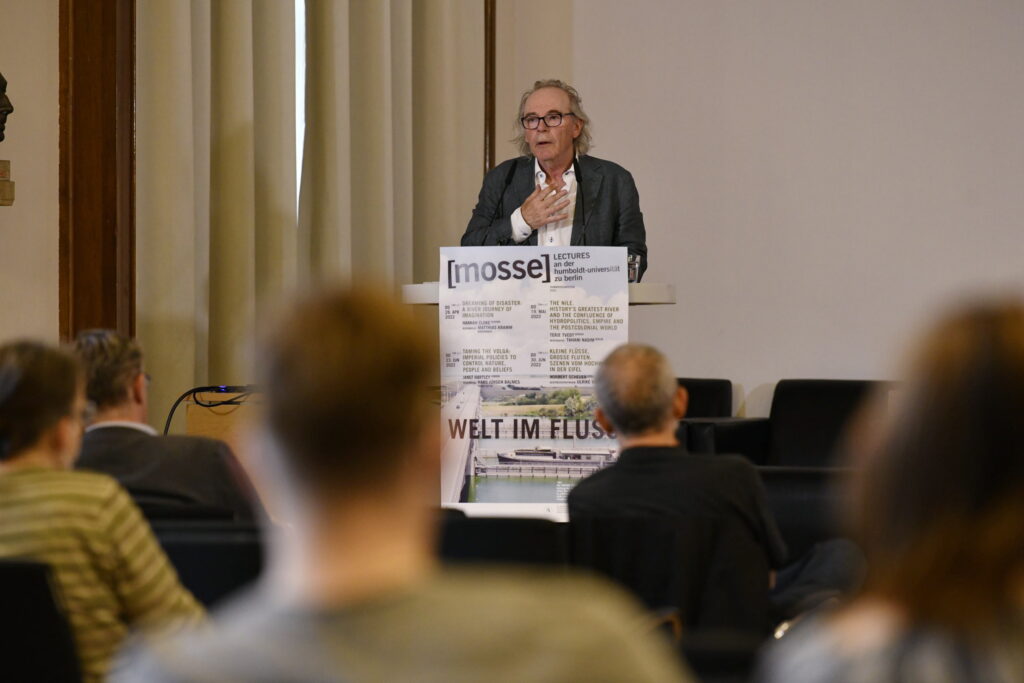
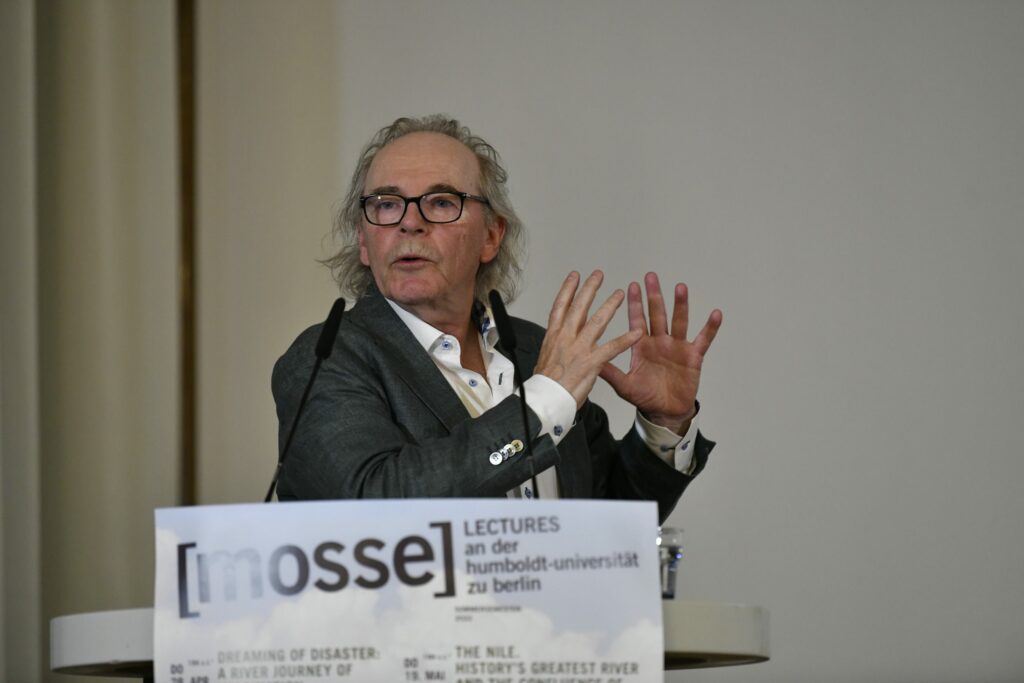
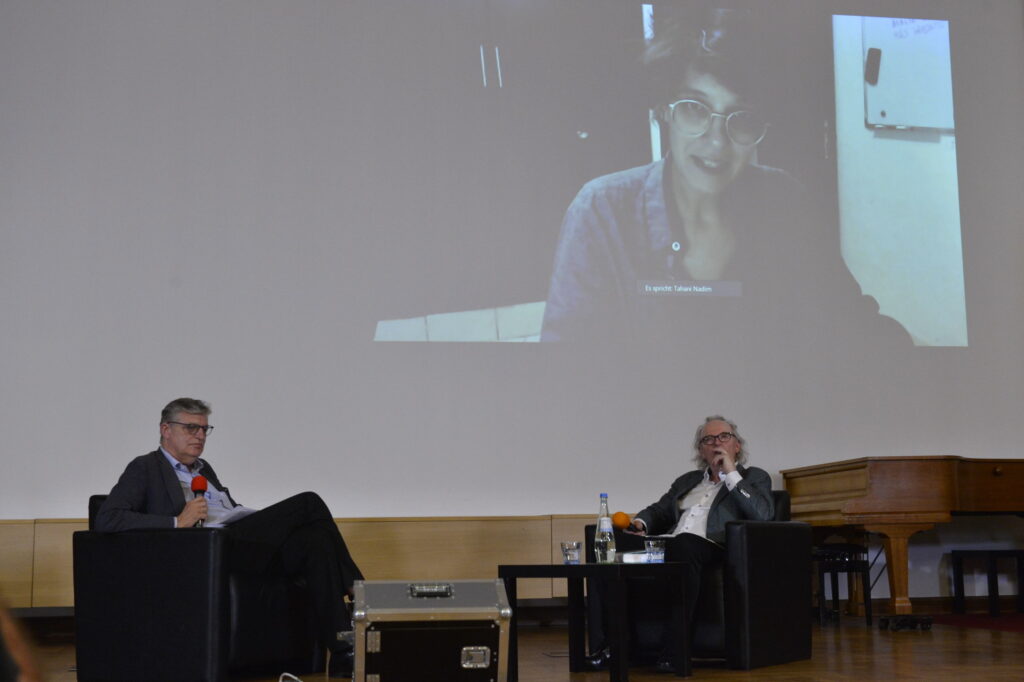
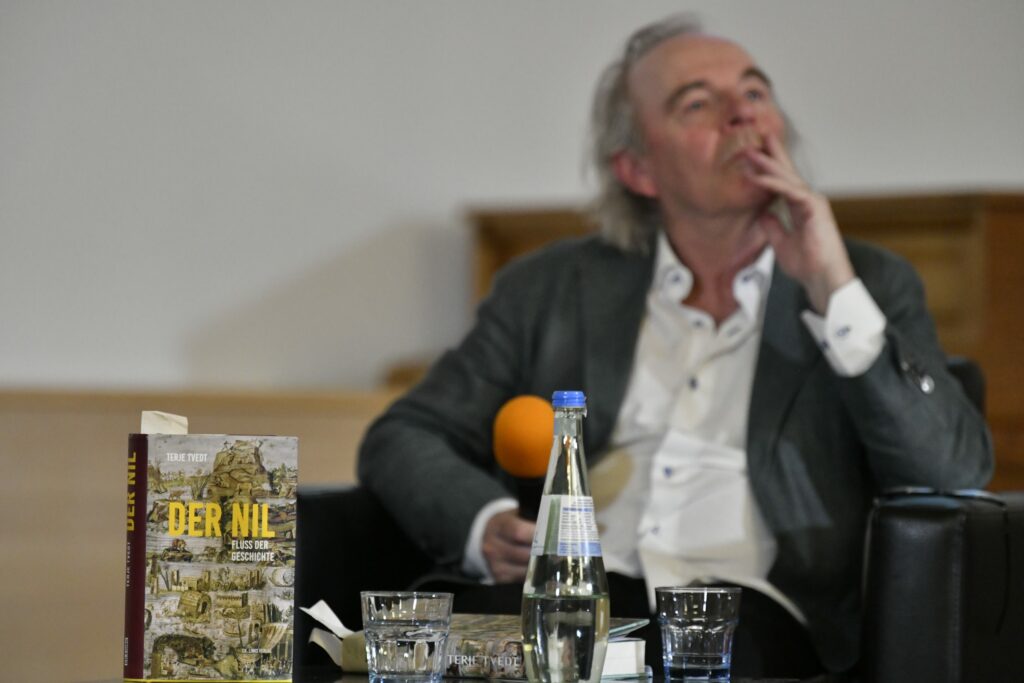
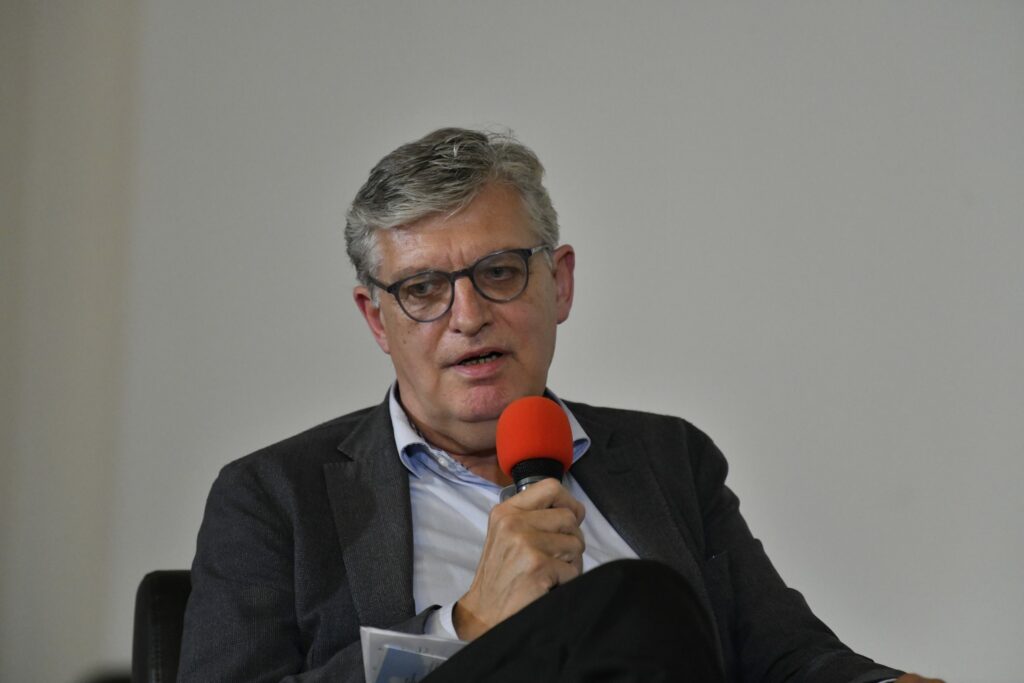
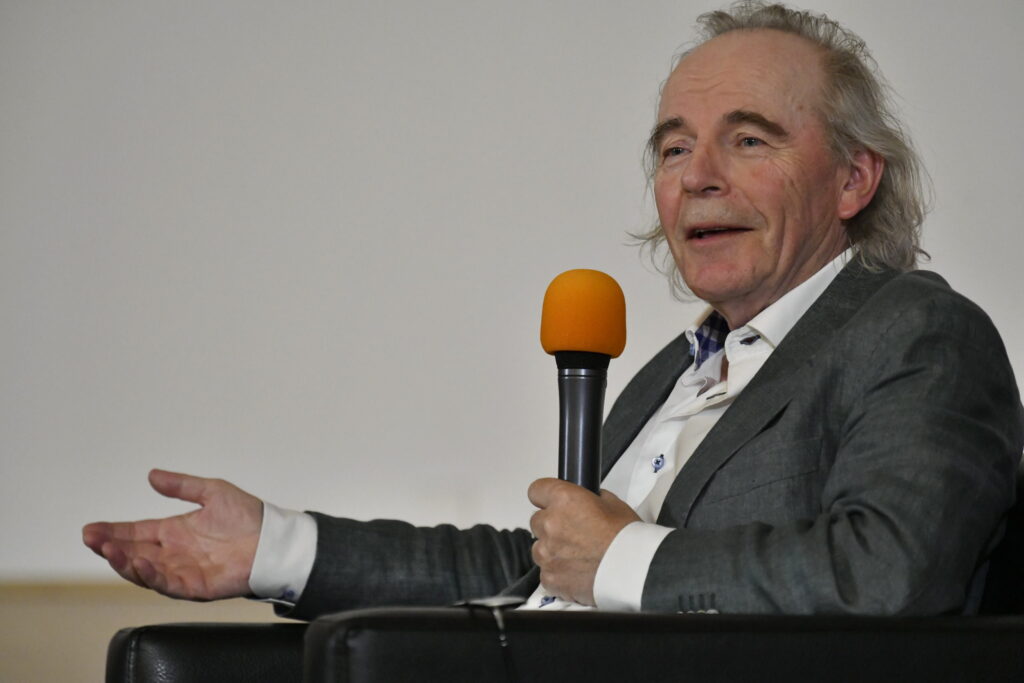


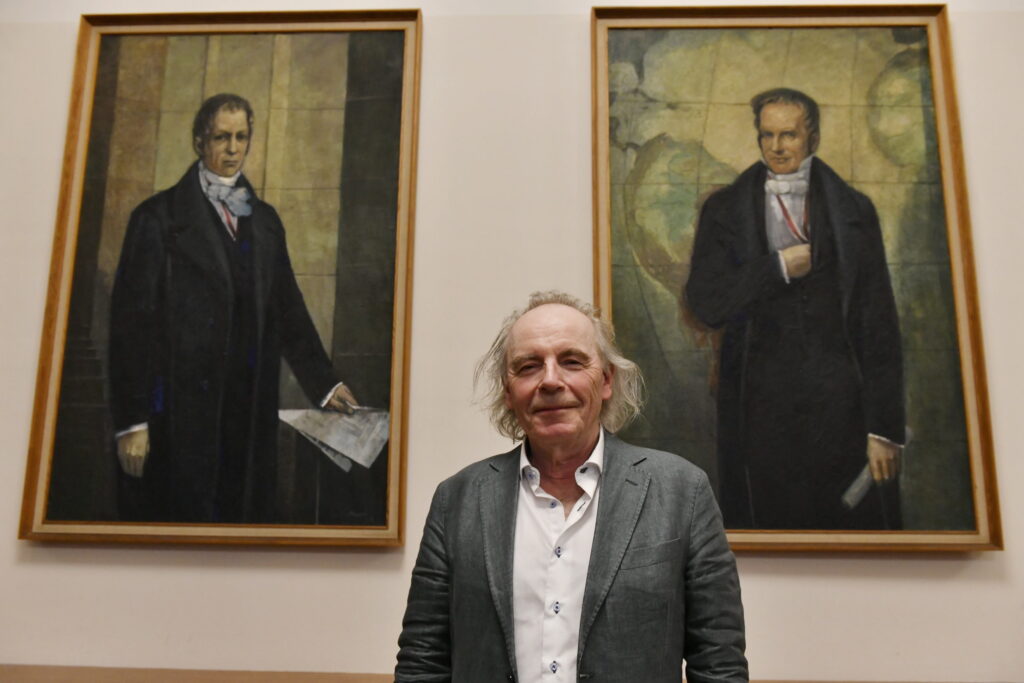
Janet Hartley
»Taming the Volga: Imperial Policies to Control Nature, People and Beliefs«
– Respondenz: Hans Jürgen Balmes | Introduction: Ethel Matala de Mazza
Thursday, June 23, 2022 | 7.15 pm | Senatssaal HU, Unter den Linden 6 (Berlin) or via Livestream on our YouTube channel
gallery:
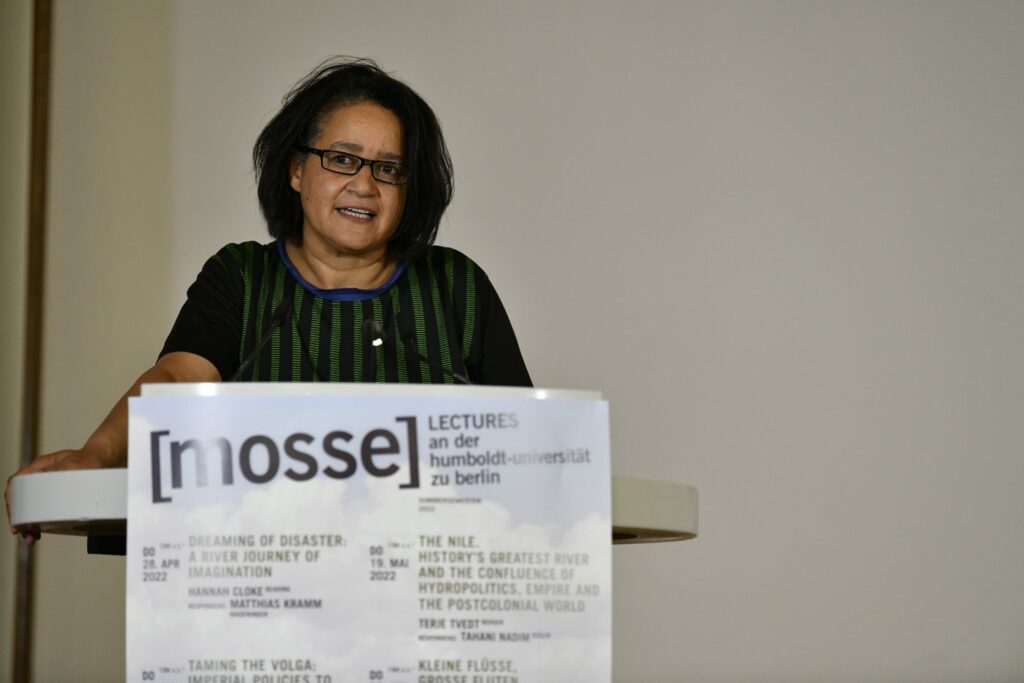
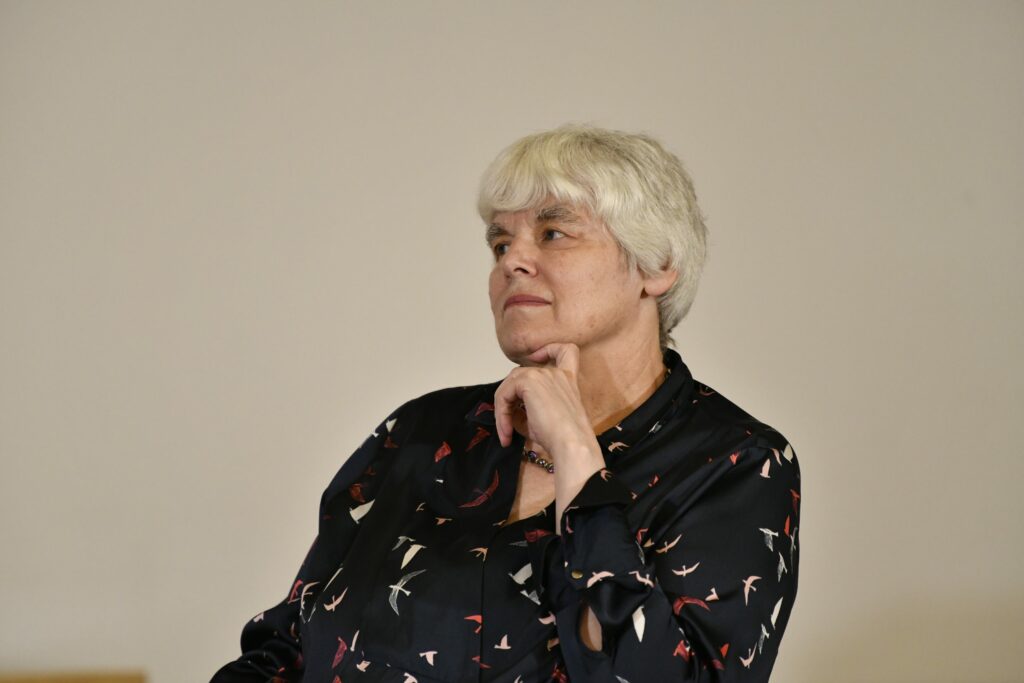
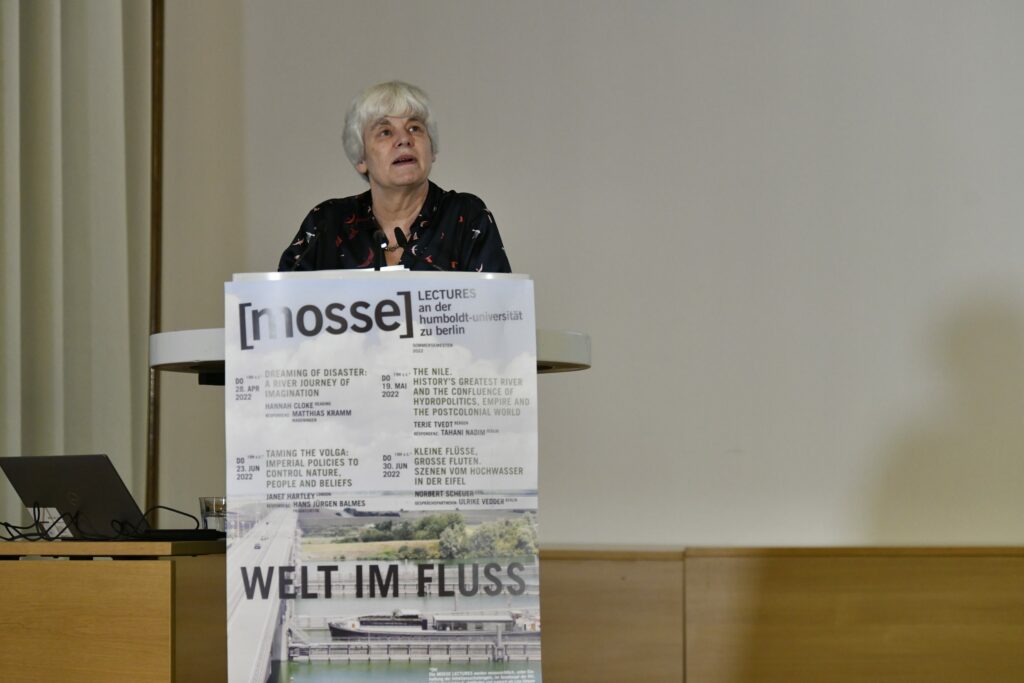
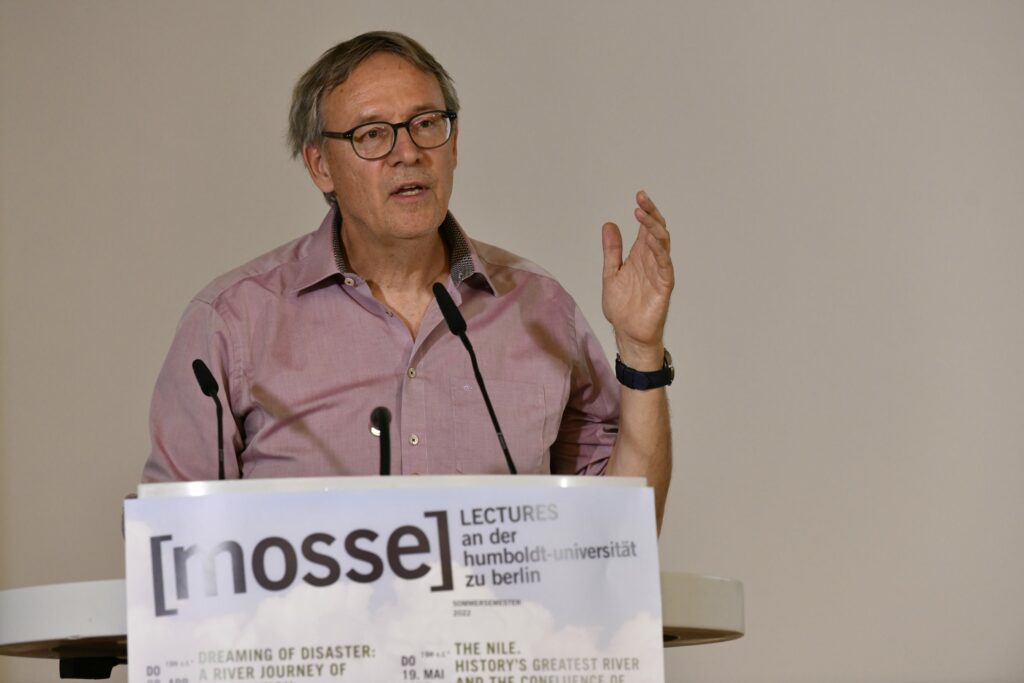
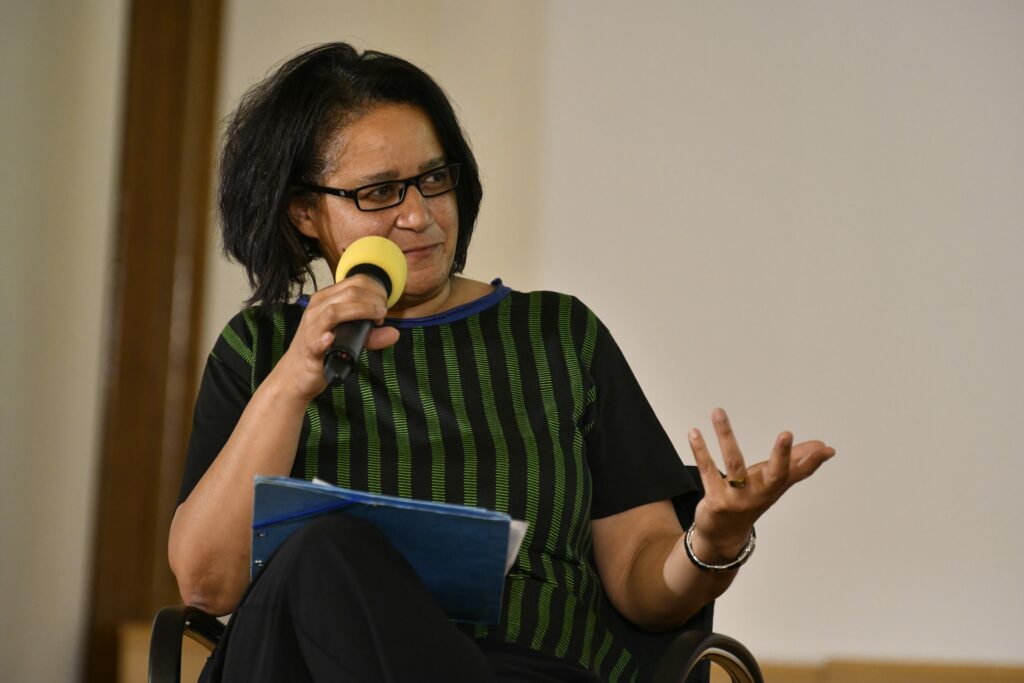
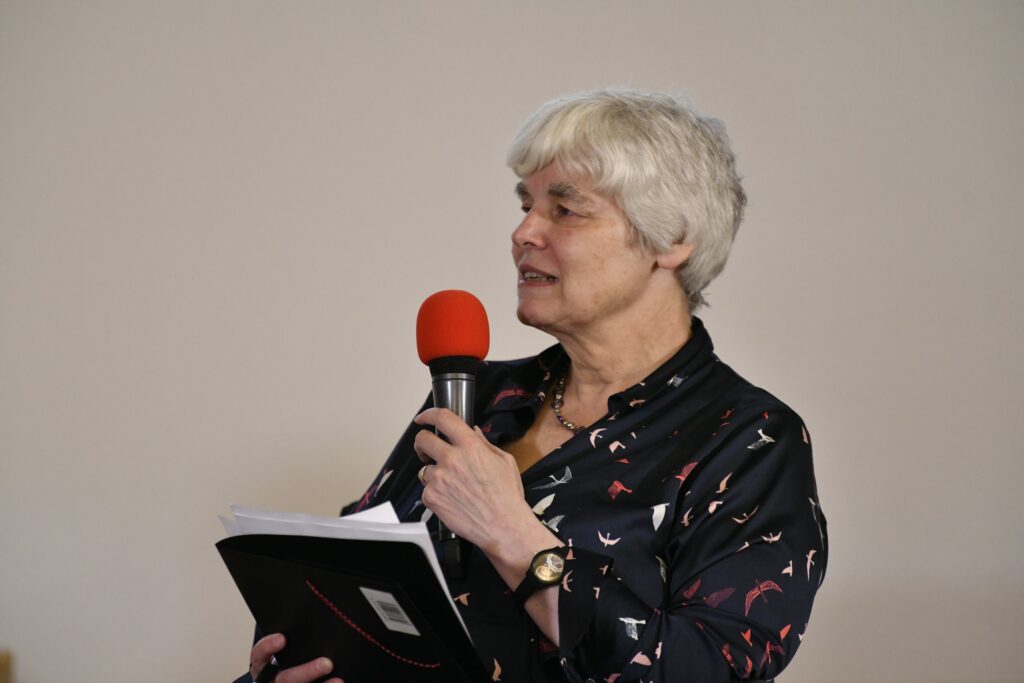
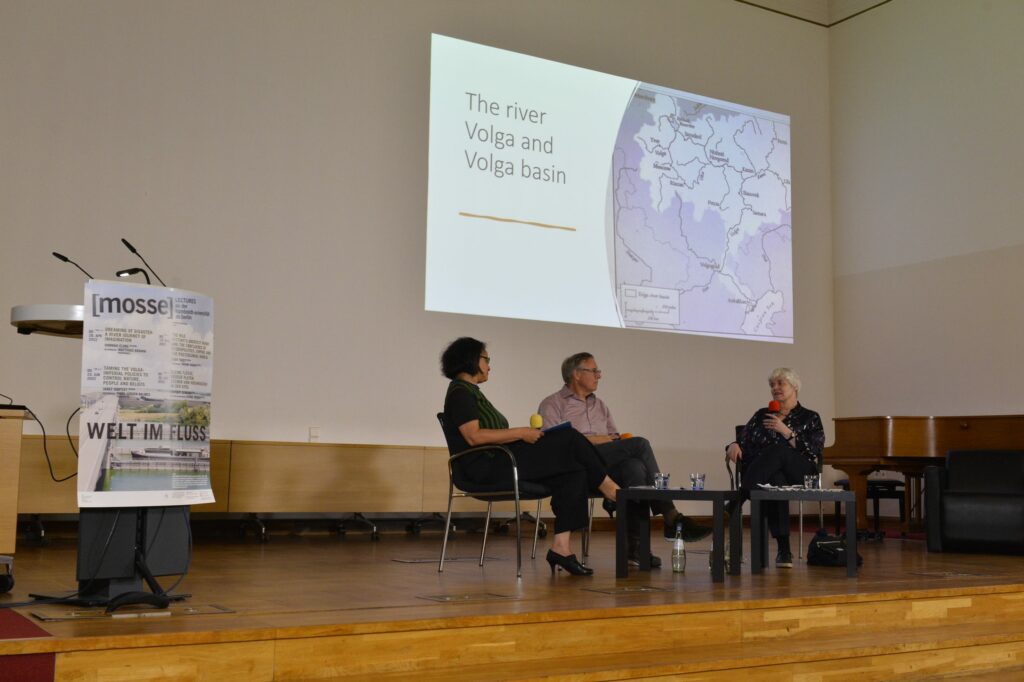
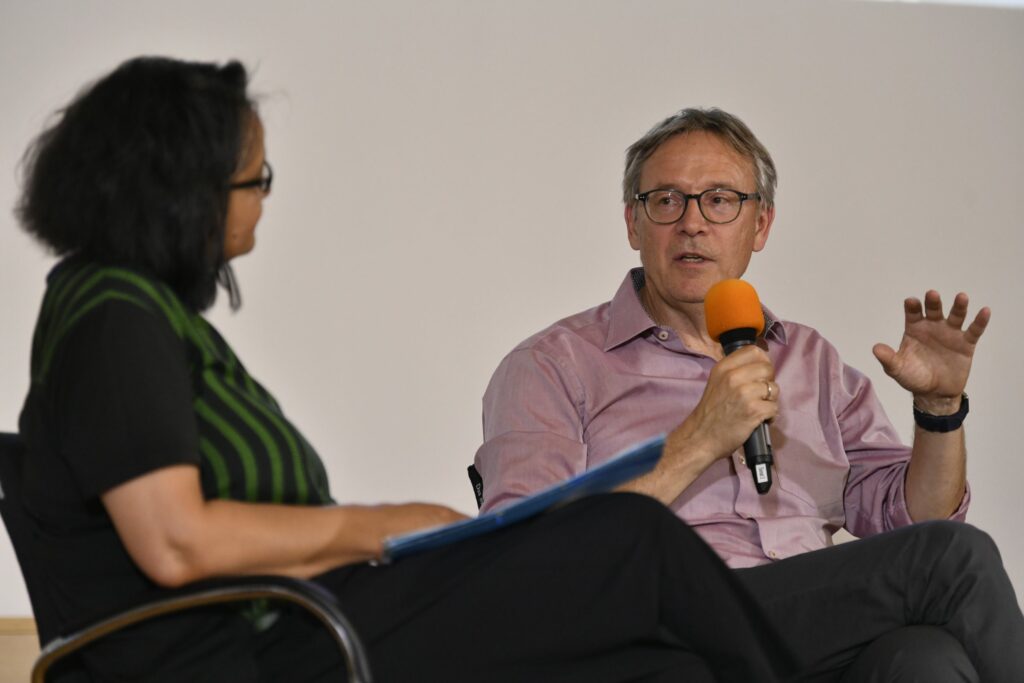
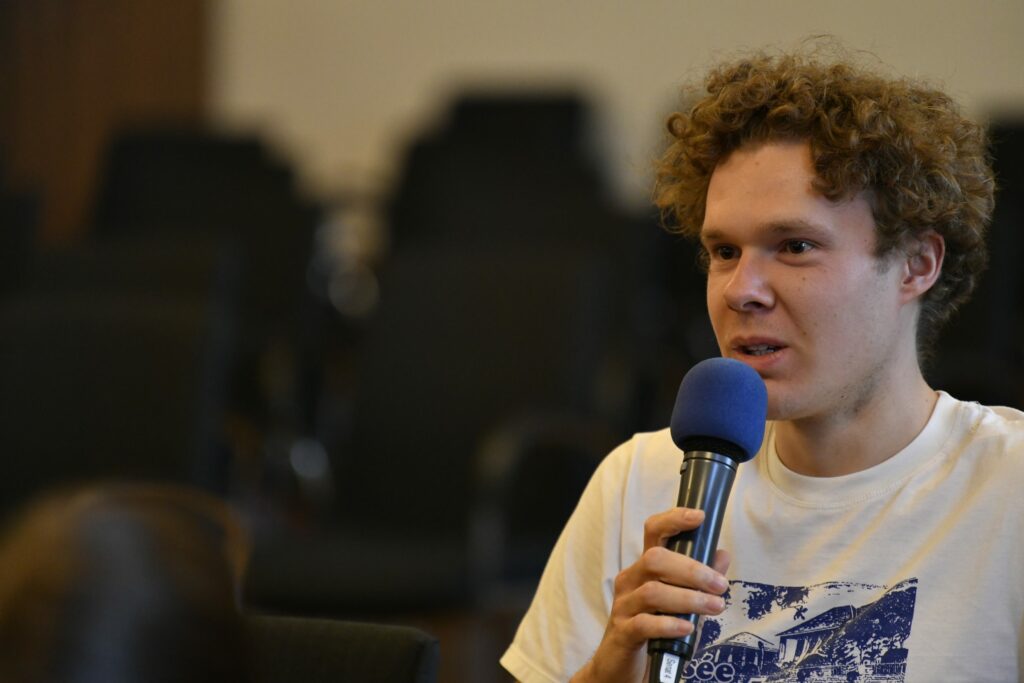
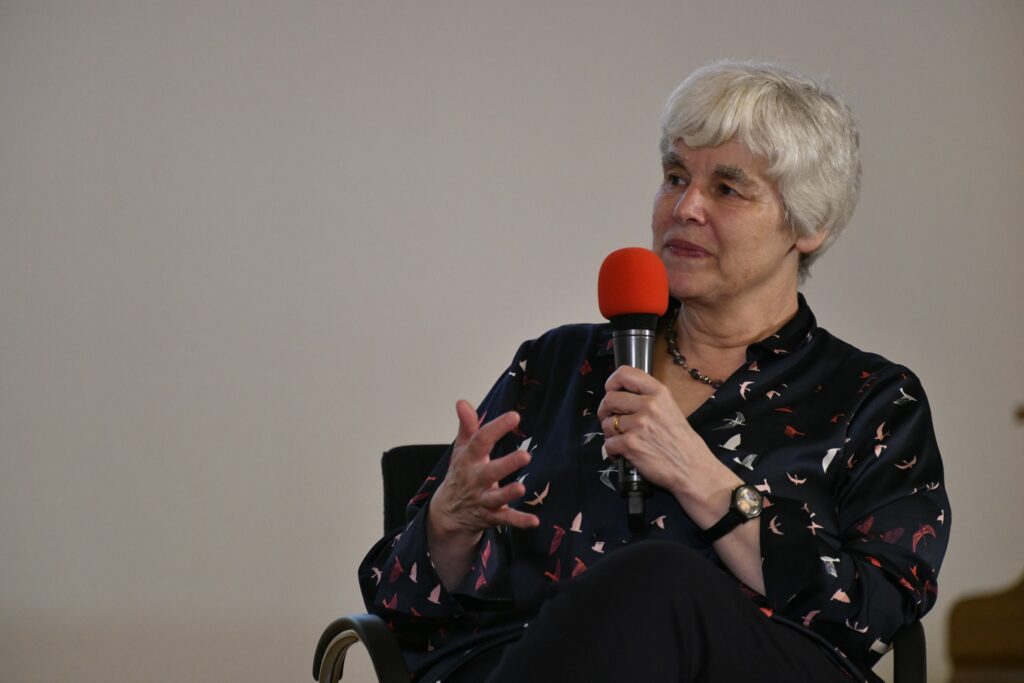
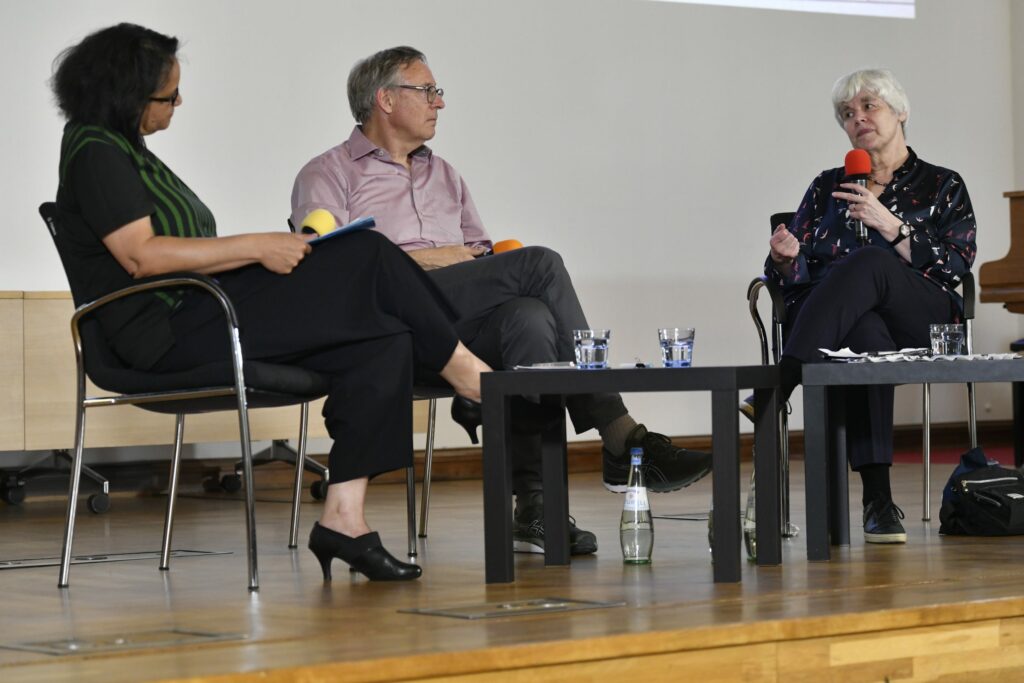
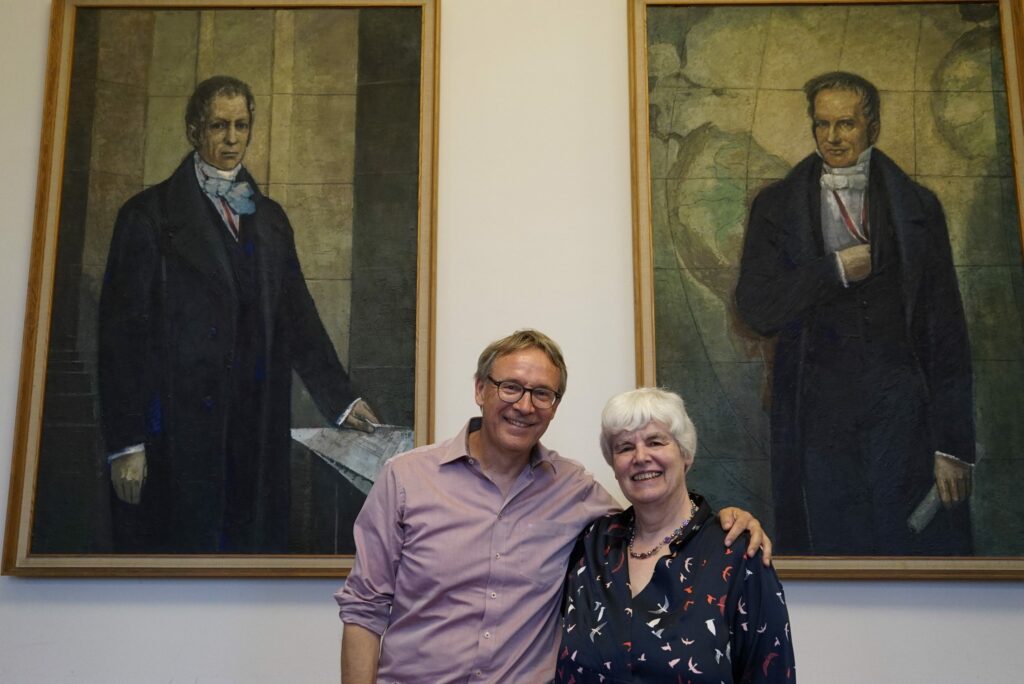
Norbert Scheuer
»Kleine Flüsse, große Fluten. Szenen vom Hochwasser in der Eifel«
– Introduction and Talk: Ulrike Vedder
Thursday, June 30, 2022 | 7.15 pm | Senatssaal HU, Unter den Linden 6 (Berlin) or via Livestream on our YouTube channel
gallery:
